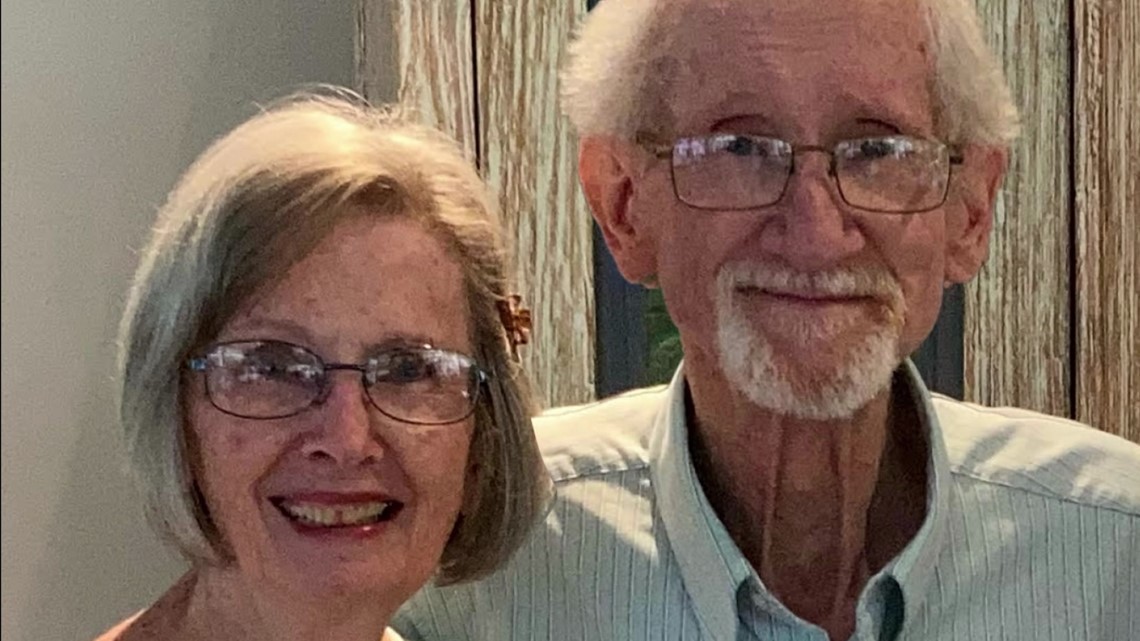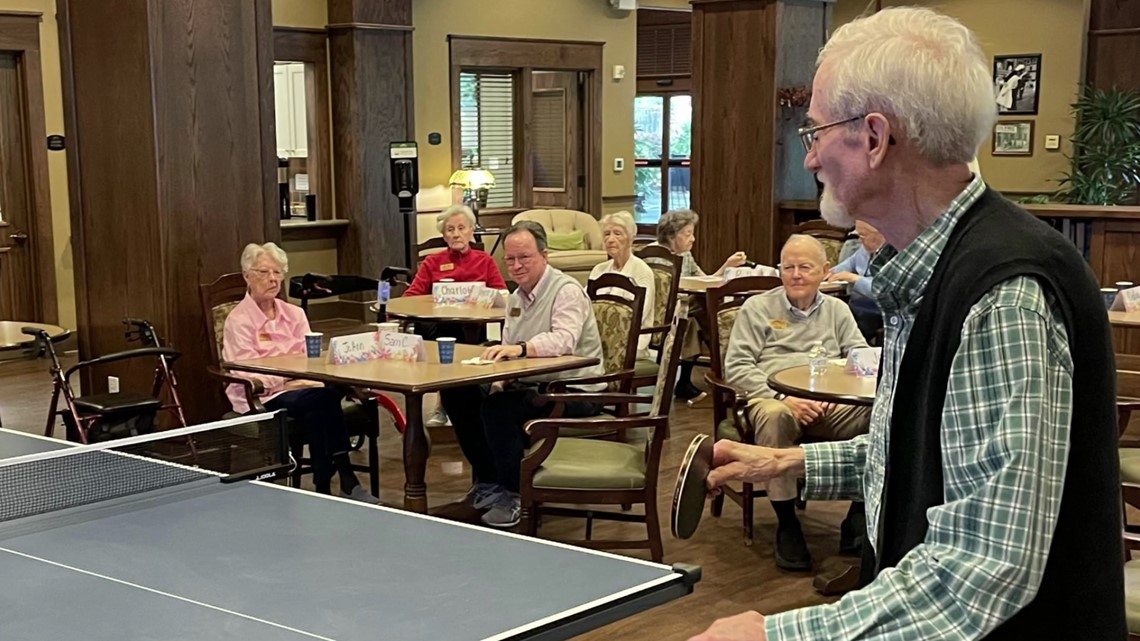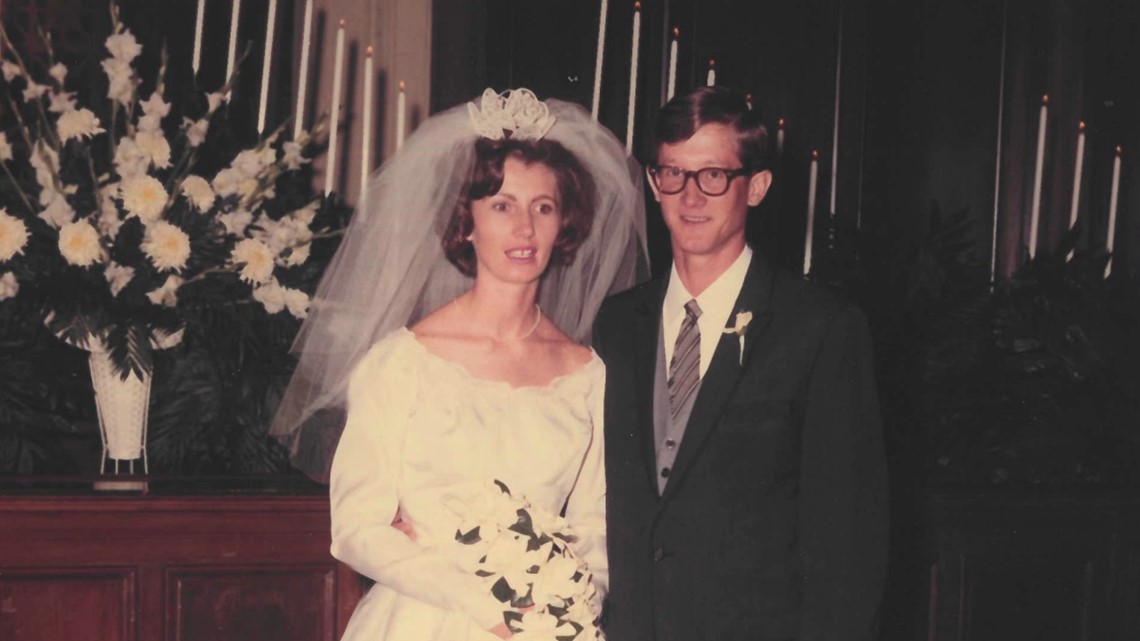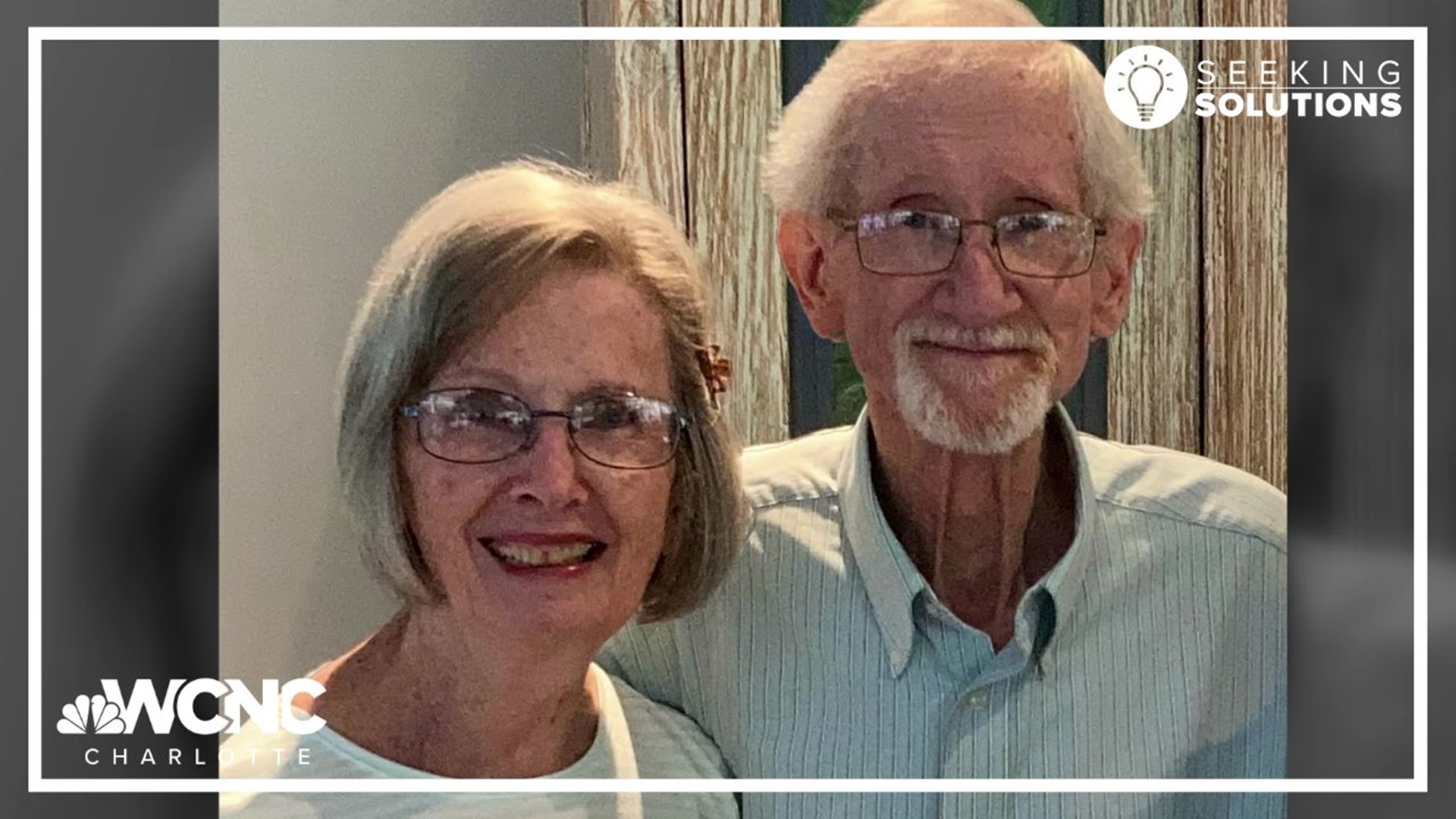CHARLOTTE, N.C. — Alzheimer's disease is a notoriously degenerative illness; patients often get worse and worse as time goes on.
But some Alzheimer’s patients and their families have said they’re seeing some remarkable positive change, thanks to time spent at a facility in Charlotte.
Very often, when you walk into The Ivey, you'll see the same four men sitting together. They will tell you, they are the best of friends.
"Four of us guys all sit together at that table over there," Gene Boswell, one of the four, said.
For Gene Boswell, it means his wife Pat Boswell is driving back and forth from Waxhaw to Charlotte twice a day.


"Forty-five minutes here, 45 minutes home and then I come again in the afternoon," she explained.
But she said it’s worth it.
"Because of the great change that occurred after he started here," Pat Boswell said.
Not that long ago, life was good for the couple, it felt normal.
The couple told WCNC Charlotte they've been married for decades. Pat Boswell reflected on the beginning of their relationship.
"We were very active, active in the church," Pat Boswell said. "He was an usher in the church for years, so we were just happily going along in a normal life."
But one afternoon on a drive home from seeing their son in Atlanta, Gene Boswell suddenly wasn’t comfortable driving.
"I got to paying more attention, there were little changes so we went to the doctor and he took the test and he was diagnosed with Alzheimer’s," Pat Boswell remembered. "His kind demeanor changed, he was not the Gene I knew – he was anxious, just was not the same and he got to be a little aggressive."
She said it wasn’t until she found The Ivey that things got better, and the founder of The Ivey agrees.
Lynn Ivey, the founder and executive director, could see it as well and said from the time he's been coming, she's seen a dramatic difference.
"He's night and day, really," Ivey said. "[He was] grouchy, and just sort of grumpy and I call it uncomfortable with himself and now he is calm, talkative and conversational and just engaging."
Gene Boswell himself seems to notice the difference.


"I've got a little bit of Alzheimer’s, but coming here helps me a lot," he said.
The Ivey was originally meant to give caretakers a break -- a place their loved ones could spend the day -- but as they focused more on science to help plan the activities, Ivey and her team noticed something: People with Alzheimer’s who were previously isolated were changing thanks to the socialization at The Ivey.
Pat Boswell said being with people similar to him helped him open up more.
"The brain gym is focused on dual tasking, the science of dual tasking says that when you do physical and cognitive exercise simultaneously... they actually see change in the brain," Ivey explained. "So when we’re doing these very focused activities or they're engaged in conversation and that social connection, they’re actually building new pathways that can bypass and circumvent where the damage is."
Pat Boswell said she has a piece of her husband back, thanks to The Ivey -- she said she's thrilled and grateful.


"Since coming here he is not angry anymore, he helps at home again like he always did," she said. "It's wonderful. It puts me more at ease."
Contact Michelle Boudin at mboudin@wcnc.com and follow her on Facebook, X and Instagram.
WCNC Charlotte is committed to reporting on the many issues facing the communities we serve. We tell the stories of people working to solve persistent social problems. We examine how problems can be solved or addressed to improve the quality of life and make a positive difference. WCNC Charlotte is seeking solutions for you. Send your tips or questions to newstips@wcnc.com.

